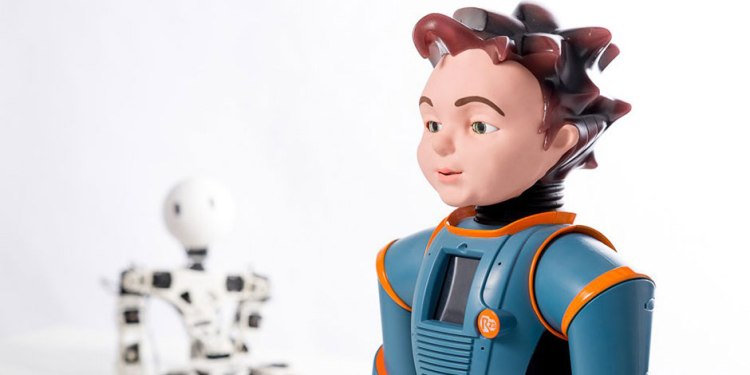TOULOUSE, France — Robots may not yet be able to experience emotion, but one French company believes that they can be used to improve connections between humans in areas such as health care and education.
RoboCARE Lab, a company based in Toulouse, France, has launched an ambitious campaign to place robots in nursing homes and schools across the country. The hope is that these robots will help the elderly remain in closer contact with family while stimulating their memories and raising their spirits for improved long-term health.
In French schools, which have struggled at times to effectively teach English, the robots would provide extra help for teachers and motivation for students. There are also plans to develop a French curriculum with robots to help autistic children learn social skills and empathy.
Naturally, in a country like France, which at times has a contentious relationship with innovation, the founders of the company are proceeding with some caution. But in the long run, they believe this new technology could have a positive impact on France, and eventually the world.
“This is something we think can be used to reach older people and younger people as well,” said Faissal Houhou, who cofounded RoboCARE with Dominique Blasco. “And we think France is ready for something like this.”
As the founders have been touring with their robots to discuss the company’s plans, they’ve certainly generated tremendous attention from the French media.
At the moment, RoboCARE uses two different robots. The first is called Milo, and is built by Texas-based RoboKind. Milo’s face becomes animated when he speaks, and he makes small gestures and motions as he communicates.
Milo is used to lead group games, including memory quizzes, and group exercises or singing activities to keep nursing home residents engaged.
Fred Margolin, chief executive of RoboKind, said his company has been working on Milo for several years now. In the process, they’ve taken a robot that originally cost $35,000 to build and shrunk the cost to under $6,000, making it more affordable for industries that need widespread deployment.
In the U.S., RoboKind has focused on developing the robots for use with autistic children through a program called Robots4Autism. He’s hoping RoboCARE will create a French version of that curriculum, which is massive in terms of the scope of its content and lessons.
RoboKind is also working on finding ways to get Milo into U.S. nursing homes, and Margolin said the company believes the robot can be effective in helping to delay the early effects of dementia. He’s optimistic RoboCARE in France will pave the way for a broader international market, and has been impressed with the company’s progress.
“I seems like RoboCARE has really taken the ball and run with it,” Margolin said.
Starting next year, Milo will also be used in a school in Picardy, France to assist with teaching English. It can be challenging to find teachers, particularly at the elementary school level, who are qualified and capable of effectively teaching English, Houhou said. He hopes educators will embrace Milo as a new teaching tool.
The other robot used by RoboCARE is a telepresence machine from Suitable Technologies. This is also being tested by two Toulouse-area nursing homes.
This robot is a computer monitor on a stand with wheels. Family members who can’t afford to make regular visits can book time online with the robot, and then control it from their own computer.
Houhou said the system provides big advantages over basic Skype video chats or phone calls. The fact that the robot can follow a resident around often leads to longer calls and interactions. And in many cases, residents may not be capable of using a computer or holding a phone for extended periods.
More importantly, whether its Milo or the telepresence robot, Houhou says the robots create a more enhanced feeling that the person is closer.
“The robot is a presence,” Houhou said. “You are not there, but it feels more like a real person.”


